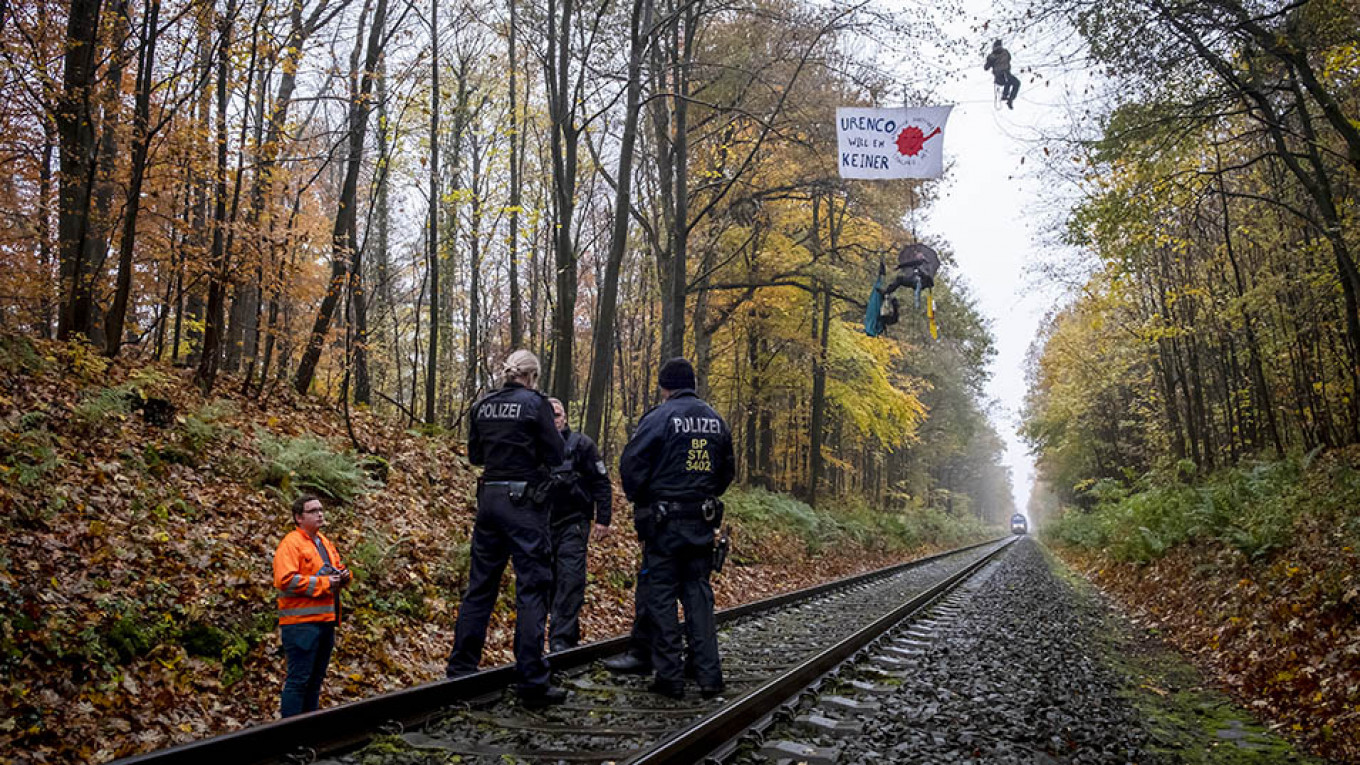
Greenpeace activists have blocked a train in Germany carrying a shipment of radioactive waste destined for Russia, the environmental organization said Monday.
German exports of depleted uranium hexafluoride, a byproduct of uranium enrichment, resumed to Russia earlier this year. The shipments had been halted in 2009 by Russia’s state nuclear company Rosatom following reports that the waste was being stored in unequipped open-air facilities in Siberia.
The environmental activists delayed a train carrying 600 tons of uranium hexafluoride Monday after it left the Urenco enrichment firm in the western German city of Gronau, the NGO said in a statement.
Activists suspended themselves from a bridge over the railroad track to delay the shipment by over eight hours before they were removed by police.
Greenpeace activist Rashid Alimov reportedly recorded radiation levels of 120 microroentgen per hour near the shipping containers — six times higher than normal.
According to Greenpeace, the shipment is scheduled to travel by train to a port in the Netherlands before being shipped to St. Petersburg and eventually to a storage facility in Siberia.
Activists from Germany, the Netherlands and Russia staged a protest outside the Gronau facility Sunday, carrying banners reading: “Russia is not a testing ground for uranium waste from Germany!”
Urenco plans to export a total of 6,000 metric tons of uranium hexafluoride, known as “tails,” to Russia, the company told The Moscow Times by email.
“The deal includes a guarantee from TENEX (a subsidiary of Rosatom) and the Russian enrichment facilities that the tails will be treated in an environmentally responsible way,” the company said.
Meanwhile, Greenpeace has called the contract “irresponsible” and says that Urenco is exporting the tails to Russia to avoid having to store them in Germany — which has announced it will shut down all its nuclear power plants by 2021.
The NGO estimates that Russia already stores 1 million metric tons of uranium hexafluoride—most of which lies in open-air facilities in Siberia.
Includes reporting by Alexey Zhabin.
